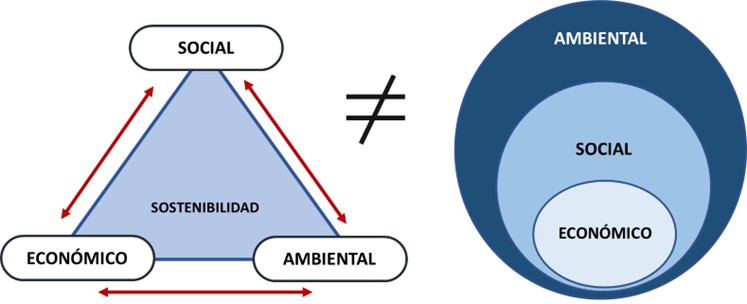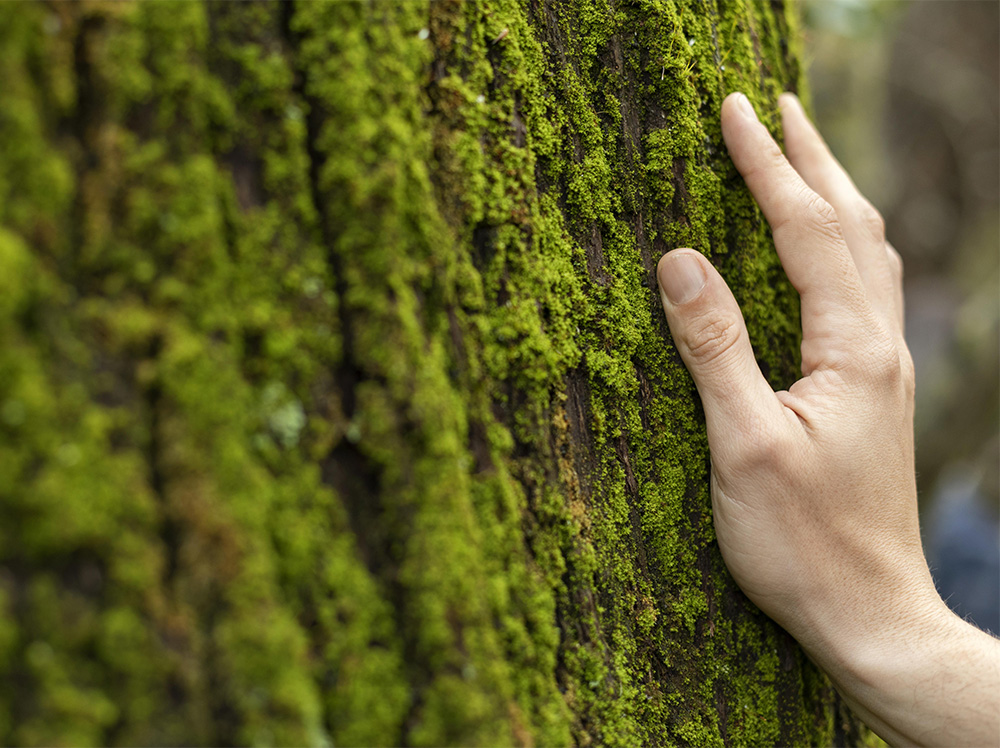Our quality of life in the future depends on how we use natural resources today. Therefore, to talk about “Sustainability” is to talk about the future.
It is SCIENCE, not fiction
We imagine tomorrow full of technology and interstellar travel, but we do not to give time to recognize ourselves today, at present. Nor do we see how this present defines the course of our future.
We do not realize that we are already inside a large spaceship, traveling dragged by the sun at the surprising speed of 828,007.48 km/h because of our stubbornness in wanting to create technologies to travel through the stars. This is not fiction, it is science. And as part of this journey, Eugene P. Odum (1996 [1]) taught us that Apollo 13 is like Earth planet in terms of the life support systems of both spaceships. In his work Ecology – A Bridge Between Science and Society, Odum talks about colonizing other planets or establishing large-scale space colonies, by mentioning: “Most important is the need to understand how the non-commercial goods and services that sustain the life of our planet support and interact with the economic, social, cultural efforts of human beings.”
The environment defines us
Natural resources, and the benefits they provide us, determine our future; therefore, talking about “Sustainability” is talking about the future. Sustainability is often considered to be related to what we do as human beings. It is considered that including good environmental and social actions in our lives that generate economic improvements is the goal of sustainability. As if sustainability were a magical and miraculous potion that contains “a little of the environmental, social, and a pinch of the economic actions,” and that the result is the formula: “we are now sustainable”.
Triangle in balance?
The proposed model for sustainable development was represented by a triangle whose end points (social, economic, and environmental actions) must be in balance to be maintained. However, each end point must “pull” toward its corner while maintaining equal forces, to a triangle remain in balance. These are the laws of physics, where “equilibrium is achieved when the sum of all forces is ZERO.” This is the concept of balance according to Isaac Newton[2] .
However, it turns out that we are not in balance. Change is constant since the origins of the planet, and nature owes its evolution to that change. Change defines us, and the way we adapt is what makes us special. In other words, adapting to change and the environment is what keeps us alive. These changes force us to be intelligent to live. Do not forget, we are not strong or fast, we are intelligent.
Sustainability is not a triangle in balance where environmental, social, and economic forces are tense trying to cancel each other out. Sustainability is not related to the development of technology or artificial intelligence; it does not depend on “what we have”; it is closely related to “what we want to be.”
To talk about “Sustainability” is to talk about the future
Our quality of life in the future depends on how we use natural goods and services today. It is not about freezing resources in untouchable areas. Our quality of life in the future depends on how we ensure that the goods and services of today’s ecosystems are maintained, renewed, and regenerated. Benefit us today, without taking away our right to benefit in the future.
For this reason, sustainability consists of ensuring survival by “sustaining” our human condition over time. Sustainability is recognizing ourselves within this spaceship called Earth in which we live as a society, where the economy is a way to ensure our quality of life. Sustainability is how we will live in the future, based on the decisions we make today.

It is for this reason that the sustainability model created in the past about maintaining the balance of environmental – social – economic forces does not help. We need to change this model towards a circular one where the environmental sphere encompasses the other two (social and economic) that allows us to recognize ourselves as part of a natural whole that we do not control (such as rains, landslides, and hurricanes), but that as a society we can adapt to; and in this chaos of natural forces, we can be able to live with quality of life.
Consumerism VS sustainability
Nowadays, we eliminate the conditions necessary very fast so that genetic, ecological, and cultural information continues to exist, since we consider them unimportant for the society of modern man, and these losses have reached critical proportions. This value system reclaims the representation of humanity as a “growth-oriented consumerist society” and the product of these actions has been an increasing demand for all resources, whether renewable or non-renewable, threatening the LIFE of humans themselves.
The “growth-oriented consumer society” is, in a fundamental sense, an antithesis to life. Its promotion and sale to the world as “development” and “progress” can only be seen as an irresponsible action which considers that the development of a monetary system has greater validity than the conservation of living systems.
How do we SUSTAIN our survival as a human society?
It is time to prioritize how truly important the health of ecosystems is. The social and economic sphere cannot exist without the environmental sphere. Both depend on the base, which is the environmental or ecosystem sphere. It is possible to take advantage of natural resources without putting particular species or the ecosystem at risk, creating a favorable environment for social and economic development.
Sustainability would be to maintain or improve that quality of future life that depends on how we care for and regenerate the natural environment that provides us with what we need to live in society.
Written by Daniel Valle Basto y Tatiana Espinosa Quiñones
Translated by Selene Sanchez García
[1] Taken from: Odum, E. 1997. Ecology – A Bridge Between Science and Society. Sinauer Associates Inc. Publishers. Maschachussets. USA- ISBN 0-87893-630-0, 331pp.
[2] Taken from: https://es.khanacademy.org/science/physics/forces-newtons-laws/newtons-laws-of-motion/a/what-is-newtons-first-law
Imagen de <a href=”https://www.freepik.es/foto-gratis/mano-tocando-musgo-arbol-cerrar_13436430.htm#page=3&query=recursos%20naturales&position=44&from_view=search&track=ais“>Freepik</a>
